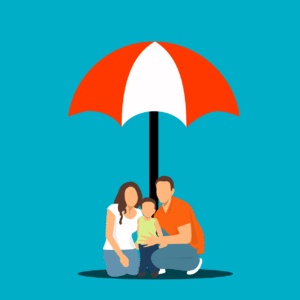Owning a home is a major milestone and investment, but protecting that investment is equally important. Homeowners insurance offers financial security against events like fire, theft, natural disasters, and liability claims. For many U.S. homeowners, understanding what home insurance covers, why it’s necessary, and how to optimize it can feel complicated.
This detailed guide will walk through the essentials of home insurance in relatable, clear language, enriched with real-life stories, comparison tables, frequently asked questions, and personal insights. It is tailored specifically for U.S. homeowners in 2025.

What Is Homeowners Insurance?
Homeowners insurance is a package policy that provides financial protection against damage to your home structure, personal belongings, additional living expenses, and liability for accidents occurring on your property.
Four Main Coverages of a Typical Homeowners Policy
| Coverage Type | What It Covers | Typical Details |
|---|---|---|
| Dwelling Coverage | Damage to the physical structure of your home from covered hazards (fire, windstorm, hail) | Usually covers rebuilding costs |
| Other Structures | Detached structures such as garages, fences, sheds | Usually 10% of dwelling coverage |
| Personal Property | Your belongings like furniture, clothes, electronics | Usually 50-70% of dwelling coverage |
| Liability Coverage | Legal and medical costs if someone is injured on your property | Typically $100,000 or more coverage limit |
| Additional Living Expenses | Costs for temporary housing if your home is uninhabitable | Covers rent, hotel, meals up to policy limits |
What Homeowners Insurance Does NOT Cover
- Flood and earthquake damage, unless you buy additional policies.
- Routine maintenance issues like mold or wear and tear.
- Damage caused by pests or neglect.
- Intentional damage or illegal activities.
Tip: Flood insurance can be purchased through the National Flood Insurance Program (NFIP), and earthquake insurance is available as a separate policy or endorsement.
Real-Life Story: How Home Insurance Saved the Martinez Family
The Martinez family’s home was damaged by a severe windstorm, leading to roof damage and water intrusion. Their homeowner’s insurance covered repairs and temporary housing while the house was fixed, preventing a financial disaster and allowing them to focus on recovery.
Types of Homeowners Insurance Policies
| Policy Type | Coverage Level | Who It’s For |
|---|---|---|
| HO-1 | Basic, limited perils (fire, theft) | Rare; minimal coverage |
| HO-2 | Broad form, named perils coverage | Older homes or limited coverage needs |
| HO-3 | Most common; covers all perils except exclusions | Standard for most homeowners |
| HO-4 (Renters) | Personal property and liability (no dwelling) | Renters needing coverage for belongings |
| HO-5 | Comprehensive all-perils, including personal property | High-value homes; full coverage seekers |
| HO-6 (Condo) | Covers unit interiors and belongings | Condominium owners |
| HO-8 | For older homes with market value coverage | Homes that do not qualify for other policies |
How Premiums Are Determined
Factors influencing home insurance premiums include:
- Location (risk of natural disasters, crime rates)
- Home value and replacement cost
- Construction type and age
- Credit score and claims history
- Deductible amount
- Safety features (alarms, sprinklers, deadbolts)
Tips for Saving on Homeowners Insurance
- Raise your deductible (the amount you pay before insurance kicks in).
- Bundle your home and auto insurance.
- Install security and fire prevention devices.
- Maintain a good credit score.
- Shop and compare quotes annually.
- Avoid frequent claims to keep your record clean.
Common Questions About Homeowners Insurance
Q: Is home insurance mandatory?
A: Not by law, but mortgage lenders usually require it to protect their loan investment.
Q: What is replacement cost vs. actual cash value?
A: Replacement cost pays for new materials at today’s prices; actual cash value deducts depreciation.
Q: Does homeowners insurance cover natural disasters?
A: It covers many disasters like fire and tornadoes but not usually floods or earthquakes.
Q: Can I customize my coverage?
A: Yes, you can add endorsements or riders for items like jewelry, art, or home office equipment.
Personal Story: How Raising My Deductible Saved Me $400 Annually
By increasing my deductible from $500 to $1,500, my premiums dropped substantially. The monthly savings were enough to start a separate emergency fund dedicated to minor repairs, giving me financial flexibility and peace of mind.
Call to Action: Protect Your Home Smartly
Evaluate your current coverage, check exclusions, and assess your home’s rebuild cost. Request quotes from multiple insurers to ensure you get the best price for the coverage you need. Don’t wait for disaster to strike—being prepared is the key to financial security and peace of mind as a homeowner.
🇺🇸 Smarter Money Tips for Americans
Discover our guides on credit, loans, insurance, and savings designed for the U.S.
💡 Explore Guides





